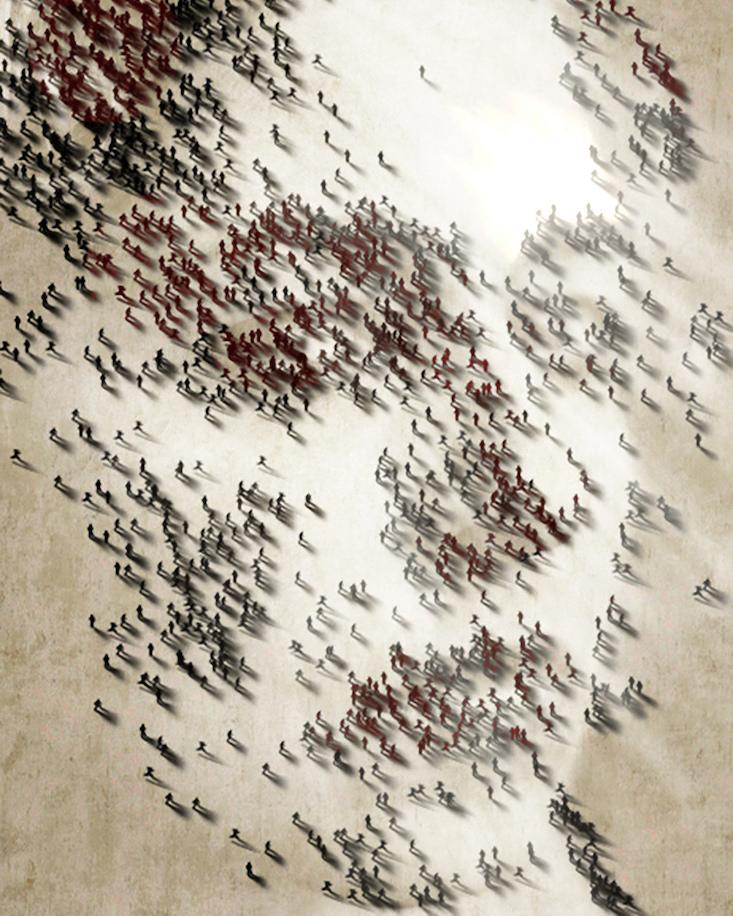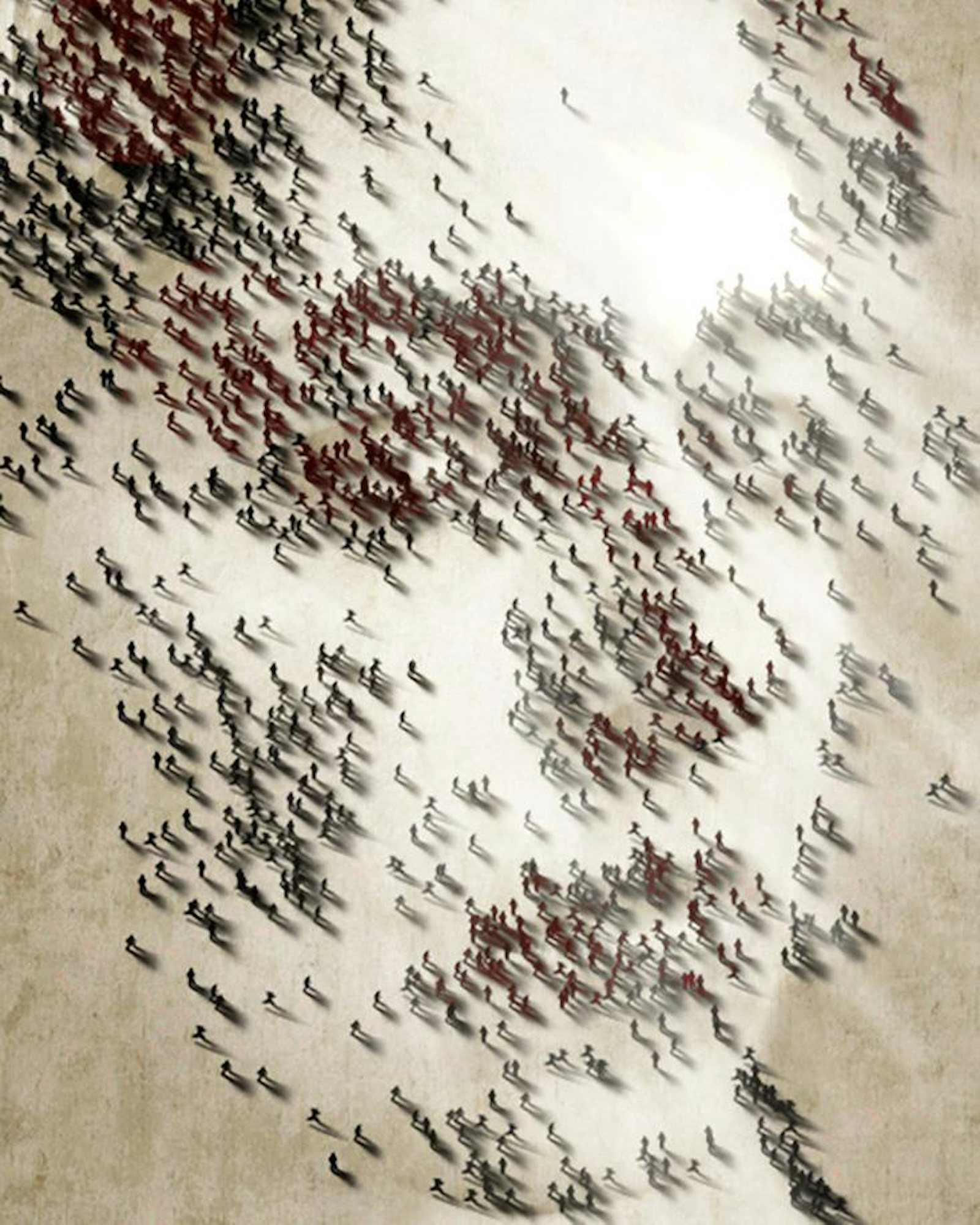
The Canadian poet Dennis Lee once wrote that the consolations of existence might be improved if we thought, worked, and lived as though we were inhabiting “the early days of a better civilization.” The test of this would be whether humans, separately and together, are able to generate and make better choices. This is as much a question about wisdom as it is about science.
We don’t find it too hard to imagine continued progress in science and technology. We can extrapolate from the experiences of the last century toward a more advanced civilization that simply knows more, can control more, and is less vulnerable to threats. Indeed if humans have any sense, they will demand the best of what robots have—prosthetic limbs, synthetic eyes, and expanded memories—so that they can keep the interesting jobs along with the status and pay that goes with them as opposed to allowing these to be parceled out.
But comparable advances in other kinds of knowledge are harder to picture. To a conservative, intelligence is embedded in what survives and what surrounds us—institutions, monuments, habits, and norms, perfected through repetition and adding up to the accumulated wisdom of the ages. Being there is proof of wisdom. Survival is the only test that matters. The radicals think differently. To them the world exists to be remade through rational thought from which actions can be deduced, with the collective imagination crystallized in political parties, movements, and intellectual currents. What is, the world around us, cannot be the best possible world.
Engagement with the ideas of collective intelligence indicates a synthesis that challenges both of these stances. It suggests that societies evolve best through imaginative trial and error. What is is most certainly not the best, and is highly unlikely to be the best for those who fate has born poor or powerless. But what could be will never be born fully formed; it needs to be tested out, honed, and recast through experience. In other words, progress has to be incubated in a dialectical way, through praxis not pure intellect, and part of that involves continually questioning the abstractions of theory—abstractions like “the market,” “the state,” or “society.”
The idea of an evolution of consciousness is both obvious and daunting.
The study of wisdom in different civilizations and eras has confirmed that there have been surprisingly convergent views of what counts as wisdom, the highest level of intelligence. These include the ability to take a long view, integration of ethics into thought and decisions, and attention to the details of context rather than simple application of rules or heuristics. Perhaps the most fundamental lesson from the study of wisdom in the past is the idea that wisdom entails transcending the boundaries of self or identities and belonging. We recognize it in leaders who recognize that their firm is part of a sector and economy, their city is part of a nation and the world, their military organization is part of a larger system that may preserve peace, and their individual and community depends on the biosphere.
Yet there is an inescapable tension between the pull of what’s close at hand and present, and the aspiration to think and act bigger, wider, and over longer timescales. Indeed, many may feel uncomfortable with the idea of a collective intelligence that dissolves the boundaries of the self—that will know us all too well, spot our weaknesses, and challenge our illusions of permanence. Social media are already nurturing a generation more at ease with much of their life being open to others’ gaze, with all the advantages and anxieties that brings. A truly well-informed society might be harder to resist than an oppressive state. And certain kinds of collective intelligence could threaten creativity and iconoclasm in the way that too much participation in social media already seems to undermine originality.
A more optimistic view would expect us to learn the cultural habits of being part of a collective intelligence—better able to share, listen, or take turns. It would hope too that we can learn the wisdom to cope with opposites—to understand suspicion as necessary for truth, fear for hope, and surveillance for freedom.
It’s tempting to link possible future evolutions of collective intelligence to what we already know of evolution. John Maynard Smith and Eörs Szathmary offered one of the best summaries of these processes when they described the eight main transitions in the evolution of complexity in life. These were the shift from chromosomes to multicellular organisms, prokaryotic to eukaryotic cells, plants to animals, and simple to sexual reproduction. Every transition involved a new form of cooperation and interdependence (so that things that before the transition could replicate independently, afterward could only replicate as “part of a larger whole”), and new kinds of communication, ways of both storing and transmitting information.
It’s entirely plausible that future evolutions of intelligence will have comparable properties—with new forms of cooperation and interdependence along with new ways of handling communication that bring with them deeper understanding of both the outer as well as inner world. The idea of an evolution of consciousness is both obvious and daunting. It is obvious that consciousness does evolve and can in the future. But social science fears speculation, and much that has been written on this theme is either abstract or empty. We see in films and novels visions of machines with dramatically enhanced capacities to calculate, observe, and respond. They may be benign or malign (they’re more interesting when they are evil), but we can grasp their implications when we see them scanning emotions on faces, shooting down swarms of attacking missiles, or manipulating complex networks to direct people.
No reliable theory for the evolution of consciousness is feasible.
Yet it doesn’t take much reflection to remember that throughout history, changes in the quantity of calculation or intelligence are always accompanied by changes in quality—changes in how we think as well as what thinking does. These brought us new ways of seeing the world, such as the idea of a world ruled by scientific laws, not magic, people as sovereign citizens, humans depending on a global ecosystem, or selves as composite, contingent, and partly illusory.
It follows that any future changes to intelligence will similarly combine quantity and quality. History tells us of just such transitions: the passage to larger scale and more comprehensive forms of state; the rise of civility, with cultures able to interact with strangers in cities; and the reductions in violence, as measured by mortality statistics and also everyday encounters.
Even if it is not linear, inevitable, or predictable, there is evidence of a general trend to more communication and what may best be described as mutual intelligence on a larger scale, which tends also to mean more shared rules and protocols, more empathy, a willingness to see boundaries as conditional, and a move away from magic or fate as explanatory.
There have been many attempts to place these into neat sequences of periods. This was a fashion in the 19th century (from John Stuart Mill to Karl Marx). Usually authors place themselves at the most advanced end of evolution (oddly they seem to lack the humility to suggest an evolution well beyond their own brilliance). The causal mechanisms are wholly unclear, since we are biologically identical to our ancestors of a 100,000 years ago. What’s known about epigenetics may explain why different contexts produce different kinds of people and cultures. We just don’t know, however.
Just as troubling for the theorists is the problem that so many of the writings that best exemplify a higher level of consciousness date back more than 2,000 years. More recent thinkers have not surpassed the wisdom and insights of the Buddha, Jesus, and Lao Tzu. Indeed, almost every other area of human intelligence—science, art, and literature—has seen cumulative progress, but not this one.
A similar uncertainty applies to individual humans. Again, there have been many attempts to spell out a single developmental route for people, composed of predictable sequential stages. They point to important truths. But they don’t neatly fit with each other, and the evidence is fuzzy. All these theories say as much about people’s desperate desire to find patterns as they do about the patterns themselves.
So could we imagine a more advanced collective intelligence, perhaps one that had transcended the illusion of self and its artificial boundaries, seeing thought as something that comes through us more than being invented by us, a world where the auras of active intelligence are visible in places and conversations, providing a feedback and commentary on the world that’s no longer just in our heads but also in between us? Could we imagine a world where our minds and senses are meshed into machine intelligence, with every aspect of consciousness potentially amplified, guided, and linked up? How could we explore the landscapes of inner space, as human brains and digital intelligence combine to generate new kinds of consciousness?
No reliable theory for the evolution of consciousness is feasible, since it would emerge from a culture and consciousness less developed than the one it attempted to explain, and could only be proven right or wrong over long periods of time. But it is possible to imagine, explore, and promote forms of consciousness that enhance awareness as well as dissolve the artificial illusions of self and separate identity.
Such a prospect would terrify many. Yet so would any more advanced forms of consciousness. Better to think, with William Butler Yeats, that “the world is full of magic things, patiently waiting for our senses to grow sharper.”
Geoff Mulgan is the chief executive of the U.K.’s National Endowment of Science, Technology and Art and a senior visiting scholar at Harvard.
Excerpted from Big Mind: How Collective Intelligence Can Change Our World, by Geoff Mulgan. Copyright © 2018 by Princeton University Press. Reprinted by permission.






























